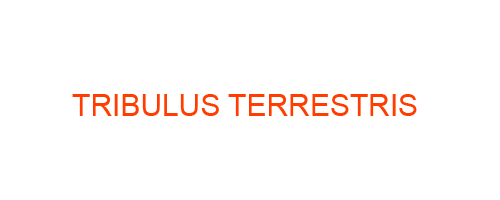Tribulus Terrestris is a homeopathic medicine derived from the plant of the same name. It is commonly known as puncture vine or goat's head and is na
Tribulus Terrestris is a homeopathic medicine derived from the plant of the same name. It is commonly known as puncture vine or goat’s head and is native to regions of Europe, Asia, and Africa. In homeopathy, Tribulus Terrestris is primarily used to address various symptoms related to the genitourinary system. Here is some information about its properties, preparation, symptoms, and more:
Properties and Preparation:
Tribulus Terrestris is prepared from the fresh, flowering plant of the same name.
The plant is collected during the flowering season and subjected to the process of potentization, which involves serial dilution and succussion (vigorous shaking).
The resulting homeopathic medicine is then prepared in various potencies for therapeutic use.
Symptoms and Materia Medica:
Tribulus Terrestris is known to act on the genitourinary system, addressing sexual and urinary symptoms.
It is often prescribed when symptoms of low libido, erectile dysfunction, and infertility are present.
The medicine is also indicated for symptoms associated with urinary tract infections, prostatitis, and urinary incontinence.
Low libido: Decreased sexual desire or interest, accompanied by reduced sexual thoughts or fantasies.
Erectile dysfunction: Inability to achieve or maintain an erection sufficient for sexual activity.
Premature ejaculation: Ejaculation that occurs sooner than desired during sexual activity.
Infertility: Difficulty conceiving or achieving pregnancy despite regular, unprotected intercourse.
Urinary tract infections: Inflammation and infection of the urinary tract, characterized by frequent urination, pain or burning during urination, and cloudy or bloody urine.
Prostatitis: Inflammation of the prostate gland, leading to symptoms such as urinary frequency, urgency, and pain or discomfort in the pelvic area.
Orchitis: Inflammation of the testicles, often resulting from an infection, causing testicular pain and swelling.
Oligospermia: Low sperm count, which can contribute to male infertility.
Varicocele: Enlarged veins within the scrotum, leading to pain, discomfort, and potentially affecting sperm production.
Breast enlargement in males (gynecomastia): Abnormal enlargement of breast tissue in males, often resulting from hormonal imbalances.
Urinary incontinence: Involuntary leakage of urine, ranging from mild to severe.
Urethral stricture: Narrowing of the urethra, causing difficulty in passing urine.
Burning sensation during urination: Painful or stinging sensation while passing urine.
Testicular pain: Discomfort or pain in the testicles, often resulting from injury, infection, or inflammation.
Lower back pain: Pain or discomfort in the lower back region, which can be related to various underlying causes.
FAQ:
Q: Is Tribulus Terrestris safe to use?
A: Homeopathic medicines are generally considered safe when used as per the recommended guidelines. However, it is advisable to consult with a qualified homeopathic practitioner before using any medicine.
Q: Can Tribulus Terrestris be used by both males and females?
A: Yes, Tribulus Terrestris can be used by both males and females. It addresses symptoms related to the genitourinary system that may affect individuals of both genders.
Q: How should Tribulus Terrestris be taken?
A: The dosage and potency of Tribulus Terrestris vary depending on the individual and the specific symptoms being addressed. It is best to consult a homeopathic practitioner for the appropriate dosage and potency.
Q: Can Tribulus Terrestris be used alongside conventional medications?
A: It is generally safe to use homeopathic medicines like Tribulus Terrestris alongside conventional medications. However, it is recommended to inform your healthcare provider about all the medications you are taking to avoid any potential interactions.
Q: How long does it take to see results with Tribulus Terrestris?
A: The time taken to see results with Tribulus Terrestris can vary depending on the individual and the nature of the symptoms. Some individuals may experience improvements within a few days or weeks, while others may require longer periods of treatment. It is best to consult a homeopathic practitioner for a personalized assessment.
Q: Are there any side effects associated with Tribulus Terrestris?
A: Homeopathic medicines are generally considered safe and do not typically produce significant side effects. However, in rare cases, individuals may experience a temporary worsening of symptoms or a mild aggravation. If you experience any unusual or severe reactions, it is advisable to consult a healthcare professional.
Books Reference:
“Synoptic Materia Medica” by Cyrus Maxwell Boger
“A Concise Repertory of Homeopathic Medicines” by S.R. Phatak
“Keynotes and Red Line Symptoms of Materia Medica” by Adolph von Lippe
“Boericke’s New Manual of Homeopathic Materia Medica with Repertory” by William Boericke
“Materia Medica with Repertory” by William Boericke
Please note that these books provide detailed information about homeopathic medicines, including Tribulus Terrestris, their indications, and symptomatology. Consulting these references can provide deeper insights into the homeopathic approach to health and healing.
It is recommended to seek guidance from a qualified homeopathic practitioner for accurate diagnosis and individualized treatment.

